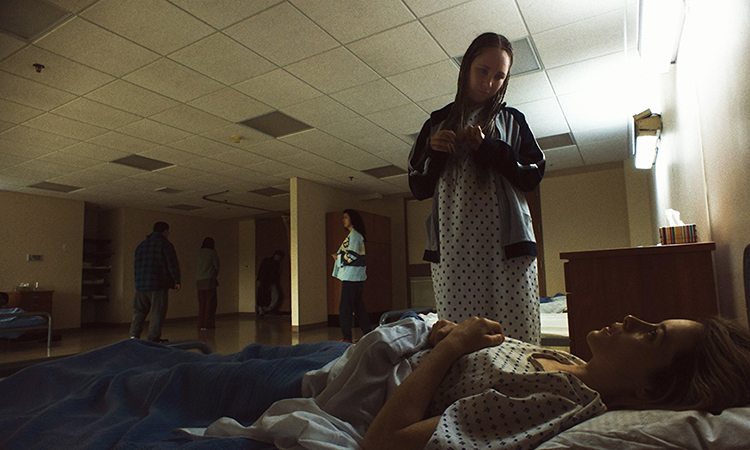Let’s get this out of the way: “Unsane” is badly made. Steven Soderbergh’s decision to shoot on an iPhone is an interesting experiment, but save for some claustrophobic angles, the film fails to take advantage of the kinetic looseness that iPhone cinematography offers. Sean Baker’s “Tangerine”, the crème-de-la-crème of movies shot on iPhones, had its camera swinging and gyrating with an energy that intentionally fell short of the protagonists’ motion. “Unsane” is more student film than Baker joint: its relationship between form and function is weak, and it looks embarrassing.
The dialogue, courtesy of two screenwriters without a well-received film to their names, is a sinking ship: wooden and incapable of carrying weight. The humor is unfunny and in poor taste—a movie about stalking should know not to make light of sexual harassment. The sound design is amateurish and shrill. It’s paced at a crawl. Rudimentary effects look like they were also done on an iPhone.
These are reasons why “Unsane” is a horrible movie. It’s also a dangerous one.
Sawyer Valentini is a young woman who’s had to uproot her life because of a relentless stalker. She finally seeks professional help, as her resulting depression has left her unable to date men and struggling with suicidal thoughts. She tells a counselor about her inclination to self-harm; after this admission, Highland Creek Behavioral Center forces her into a nightmarish psychiatric ward against her will and brutalizes her like she’s an insane animal.
Never mind the resulting plot, in which her stalker shows up in the ward to abuse her further. “Unsane” has taken its unethical stance. Its message is clear: if you’re dealing with suicidal thoughts, don’t seek professional help, because mental health providers aren’t here to help you.
If the screenplay or direction did more to remove “Unsane” from reality, perhaps this criticism wouldn’t hold up. Horror films create caricatures of settings (think summer camps or research facilities) without condemning those locations. But the screenwriters aren’t aiming for surrealism or black comedy: “Unsane” fancies itself a social commentary, bandying about talking points in an irresponsible attempt to convey distaste for the helping professions. Health insurance companies unfairly committing people for suicidal ideation, investigative journalism of substandard mental facilities—its stance is nowhere near neutral.
Viewers struggling with mental illness could suffer irreparable harm. Steven Spielberg didn’t intend to use “Jaws” as a way to scare people away from the ocean, but the movie led to a drastic decrease in beach tourism. The undercurrent of Steven Soderbergh’s “Unsane” demonizes mental health providers and treatments. What drastic decrease could this cause in people looking for the help they need?
Providers aren’t the only targets. Like a sinister inverse of “One Flew Over the Cuckoo’s Nest,” “Unsane” dehumanizes mental health patients too, treating them like ancillary monsters in a story about stalking.
This is an insidious, shoddily made movie that damages the perception of mental health treatment. “Unsane” deserves to be boycotted—as such, it earns the lowest score imaginable.
(0/5)




